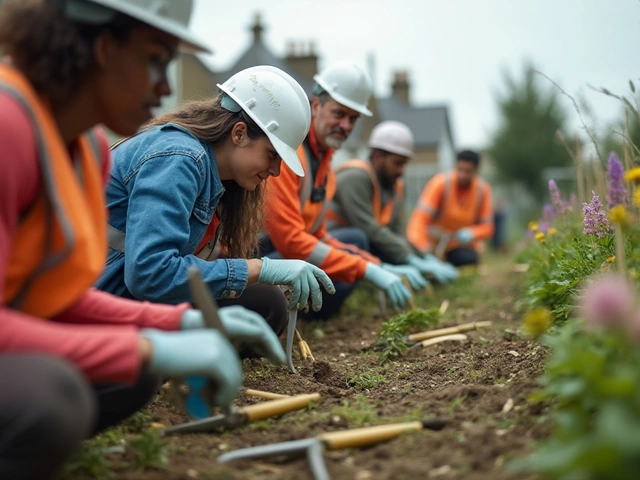Best Volunteer Traits You Need to Make a Real Impact
Ever wondered why some volunteers seem to get more trust and responsibility? It usually comes down to a handful of traits that any community group values. Below we break down those traits, show why they matter, and give you quick actions to develop them.
Reliability – Show Up and Follow Through
Reliability is the foundation of every volunteer role. When a coordinator knows you’ll be on time and complete tasks, they’ll hand you more important projects. Start by confirming your schedule before you sign up, set reminders, and let the team know early if something changes. Even a brief text saying, “I can’t make today’s shift, but I’ll cover tomorrow,” builds credibility.
Empathy – Listen Before You Act
People volunteer to help, but genuine help starts with understanding. Empathy means you listen to the needs of the people you’re serving, not just the organization’s agenda. Try asking open‑ended questions like, “What would make this easier for you?” and then reflect back what you heard. This simple step shows respect and often reveals solutions you hadn’t considered.
Beyond listening, empathy shows in how you treat fellow volunteers. A quick thank‑you, offering to share a task, or stepping in when someone is overwhelmed keeps morale high. When the team feels supported, everyone works better.
Teamwork – Blend Your Skills with Others
Volunteering rarely involves solo missions. Most projects need people to coordinate, share resources, and troubleshoot together. Identify your strengths—whether it’s organizing, communicating, or hands‑on work—and offer them where they fit. At the same time, be willing to learn from others. If a teammate knows a better way to set up a donation table, watch and copy the method.
Good teamwork also means handling conflict calmly. If disagreement arises, focus on the goal (“We need more food for the shelter”) and suggest a compromise instead of digging into personal issues.
Initiative – Spot Gaps and Fill Them
People who take initiative stand out because they never wait for directions to solve a problem. While volunteering, keep an eye out for missing supplies, confusing signage, or gaps in communication. Then propose a small fix—like labeling boxes or sending a reminder email. Even minor improvements show you care about the mission’s success.
Don’t be afraid to suggest new ideas, but back them up with a quick plan. For example, “If we add a weekly flyer, we could attract five more volunteers. I can design it in an hour.” This shows you’ve thought through the impact and are ready to act.
Adaptability – Roll with Changes
Volunteer environments shift fast—weather, funding, or last‑minute requests can change the day’s plan. Adaptable volunteers stay calm, reassess priorities, and keep the team moving. When a rainstorm cancels an outdoor event, have a backup indoor activity ready, or help shift resources to another project.
Practice adaptability by volunteering for varied roles. If you usually serve food, try data entry for the same charity. The broader your experience, the easier it becomes to pivot when needed.
Putting these traits into practice doesn’t happen overnight, but small daily habits add up. Show up on time, listen deeply, cooperate with teammates, act before being asked, and stay flexible. Over time, you’ll become the volunteer that organizers rely on, and you’ll feel more fulfilled seeing the difference you make.

Choosing the Right Volunteer: A Friendly Guide for Organisations
Choosing a volunteer isn't just about enthusiasm—find out which traits, questions, and vetting steps matter most for getting the right person on board.
Read More




